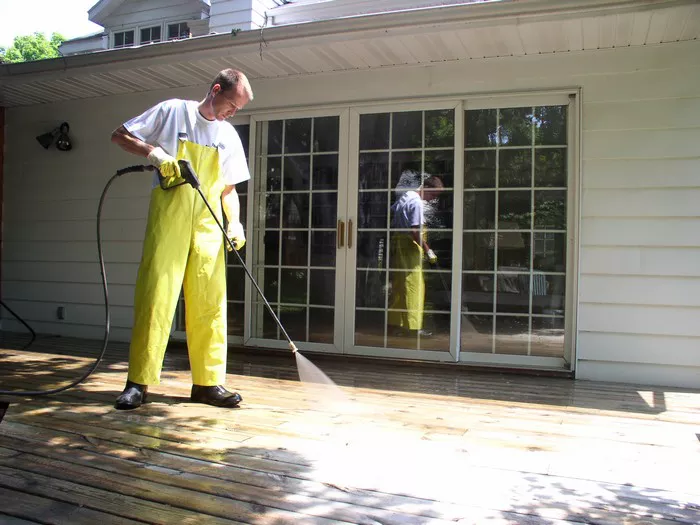Pressure washers are powerful tools for tackling dirt, grime, and stains on various outdoor surfaces. However, to maximize cleaning effectiveness and minimize damage, using the right detergent is crucial. While the idea of a DIY solution might seem appealing, there are significant factors to consider before mixing up your own concoction.
The Importance of Detergent
Pressure washers rely on a high-pressure stream of water to dislodge dirt and debris. However, detergent plays a vital role in the cleaning process. It helps to:
1. Emulsify dirt and grime: Detergents break down oil and grease, making them easier to rinse away.
2. Boost cleaning power: Soapsuds created by the detergent increase surface area contact, allowing for deeper cleaning.
3. Prevent streaking: The right detergent minimizes the chance of mineral deposits left behind by hard water, reducing streaking.
With these benefits in mind, let’s explore the potential advantages and drawbacks of making your own pressure washer detergent.
See also: What is Soft Wash System: A Gentle Approach to Exterior Cleaning
Pros and Cons of DIY Detergent
There are a few reasons why someone might consider making their own pressure washer detergent:
1. Cost-effective: Homemade solutions can be cheaper than commercially available detergents.
2. Customization (optional): In theory, you can tailor the cleaning power to specific tasks by adjusting ingredients.
However, the potential downsides of DIY solutions are significant:
1. Safety hazards: Mixing chemicals incorrectly can create harmful fumes or even explosions.
2. Ineffectiveness: Homemade solutions might lack the cleaning power of commercial detergents designed for specific tasks.
3. Potential damage: Improper formulations can damage surfaces, especially with delicate materials like wood or vinyl siding.
Alternatives to DIY Detergent
Commercially available pressure washer detergents offer several advantages:
1. Specificity: They are formulated for different cleaning tasks, such as degreasers for greasy surfaces or mildew removers for mold and mildew growth.
2. Pre-mixed: No need to worry about measuring or improper dilution, ensuring safety and effectiveness.
3. Dilution recommendations: Most products come with clear instructions on appropriate dilution ratios for optimal cleaning power.
Safety Precautions if Choosing DIY
It is important to emphasize that DIY pressure washer detergent solutions can be risky. If you are absolutely set on creating your own solution, here are some crucial safety precautions:
1. Pre-made detergents first: Always consider using a commercially available detergent that matches your cleaning needs.
2. Reputable source and safety instructions: If you find a recipe online, ensure it comes from a reputable pressure washer resource and includes clear safety instructions for handling and mixing ingredients.
3. Safe ingredients: Only use ingredients specifically recommended for pressure washer detergents, such as dish soap, degreaser, or environmentally friendly alternatives.
4. Clear dilution ratios: Follow the recipe’s dilution ratios precisely to avoid a solution that is too weak or too strong.
5. Mixing and application: Wear gloves and eye protection when mixing the solution. Apply the detergent according to the pressure washer manufacturer’s recommendations for your specific machine.
See also: A Guide to Pressure Washer Turbo Nozzles
Conclusion
While the allure of a DIY solution might exist, the advantages of using a store-bought pressure washer detergent far outweigh the risks. Commercially available detergents offer superior cleaning power, safety, and ease of use. Many manufacturers also offer eco-friendly, biodegradable options if environmental impact is a concern. For the best results and to ensure the safety of yourself and your surfaces, consider consulting a pressure washer professional for specific cleaning needs and recommendations on the most appropriate detergent for the job.

